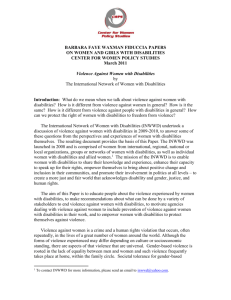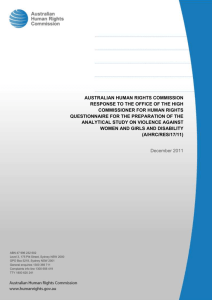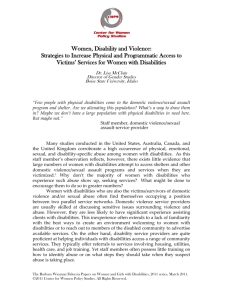TRANSCRIPT Asha Hans
advertisement
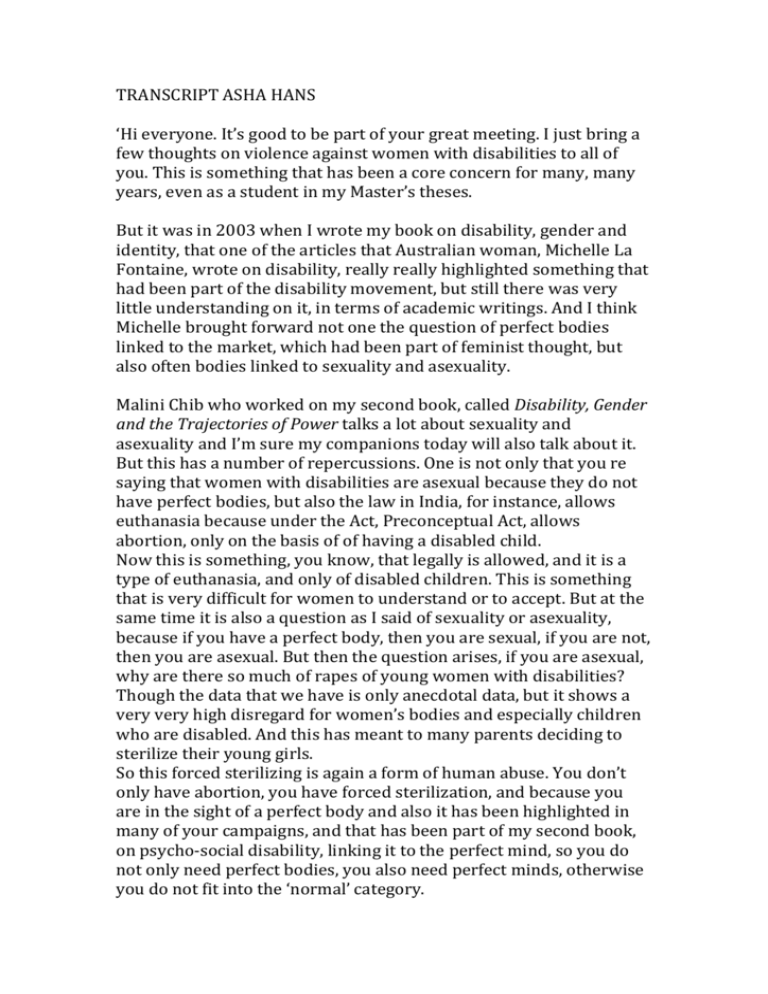
TRANSCRIPT ASHA HANS ‘Hi everyone. It’s good to be part of your great meeting. I just bring a few thoughts on violence against women with disabilities to all of you. This is something that has been a core concern for many, many years, even as a student in my Master’s theses. But it was in 2003 when I wrote my book on disability, gender and identity, that one of the articles that Australian woman, Michelle La Fontaine, wrote on disability, really really highlighted something that had been part of the disability movement, but still there was very little understanding on it, in terms of academic writings. And I think Michelle brought forward not one the question of perfect bodies linked to the market, which had been part of feminist thought, but also often bodies linked to sexuality and asexuality. Malini Chib who worked on my second book, called Disability, Gender and the Trajectories of Power talks a lot about sexuality and asexuality and I’m sure my companions today will also talk about it. But this has a number of repercussions. One is not only that you re saying that women with disabilities are asexual because they do not have perfect bodies, but also the law in India, for instance, allows euthanasia because under the Act, Preconceptual Act, allows abortion, only on the basis of of having a disabled child. Now this is something, you know, that legally is allowed, and it is a type of euthanasia, and only of disabled children. This is something that is very difficult for women to understand or to accept. But at the same time it is also a question as I said of sexuality or asexuality, because if you have a perfect body, then you are sexual, if you are not, then you are asexual. But then the question arises, if you are asexual, why are there so much of rapes of young women with disabilities? Though the data that we have is only anecdotal data, but it shows a very very high disregard for women’s bodies and especially children who are disabled. And this has meant to many parents deciding to sterilize their young girls. So this forced sterilizing is again a form of human abuse. You don’t only have abortion, you have forced sterilization, and because you are in the sight of a perfect body and also it has been highlighted in many of your campaigns, and that has been part of my second book, on psycho-social disability, linking it to the perfect mind, so you do not only need perfect bodies, you also need perfect minds, otherwise you do not fit into the ‘normal’ category. Now this has been something that has led to a number of women being forcefully detained in institutions. Shantha Rau Barriga who came to India did a wonderful study for human rights on forced detention, on how women are ill treated within the institutions that are there. It is Shanta’s concern, she not only highlighted this issue but she also was part of the team responsible for bringing about a network which has been working so broadly and deeply on the issues of violence against women. And that is the International Network of Women with Disabilities which is today one of the leading international networks which works on violence against women. And Myra Kovary who has been really leading on this organization, has highlighted in all the network discussions we have had, about legal capacity. My own discussions, like with… Tina Minkovitz, shows how women with disabilities, if they have psycho/social disabilities, they do not have legal capacity. To work on all this, within the last one year, I have been joined by other women with disabilities on a campaign that we have launched in India,… ‘Flight to Freedom’. And we see our fighting against these three: forced abortion, forced sterilization and forced detention to which women with disabilities are exposed. I am inviting you during these 16 days of violence against women, using twitter, so please do join us. I am coming finally to something that is extremely high in the violence against women, and which we have tried to fight against. I helped to establish a network of women with disabilities in India, which did the ultimate report on India and put it forward to the CEDAW committee. It should show the extraordinary amount of violence that women with disabilities are faced with, not only psychological, or physical, or sexual, but also economic, which legal capacity shows us. Now taking this forward, has been also a personal journey, for when I was ten years old, I remember an aunt of mine died. We used to play together, I was about ten and she was seventeen. And when she died, we didn’t know what it was. Many years later when again another death took place in the family, it came out that it was a bipolar disorder, which was because of high depression, which leads to a large amount of people committing suicide. My young niece at the moment has that. So it has been part of our family, part of what we live with. It is a disability, which is not recognized, it is a disability which is invisible, and one that the world does not know and ignores to a large extent. For those who have this disability, violence is an everyday affair. I thank you for allowing me, giving me the space to talk to you. I hope the skype comes through because then we can meet and talk a little bit about if you want any other issues to be discussed or some questions that you may have. Thank you so much.





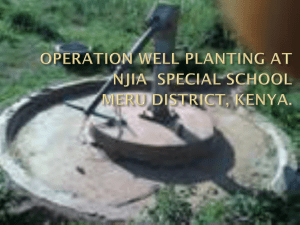
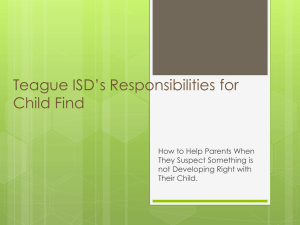
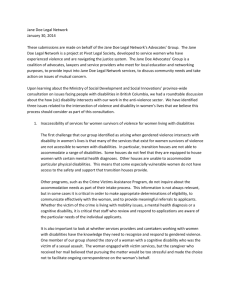
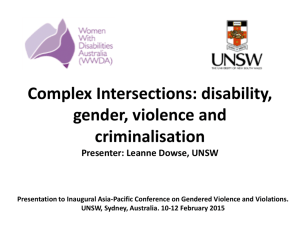
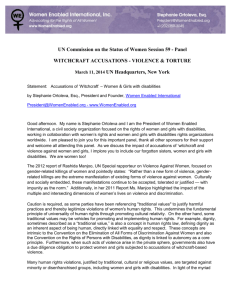
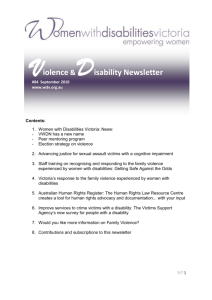
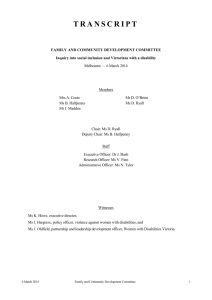
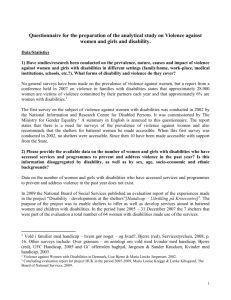
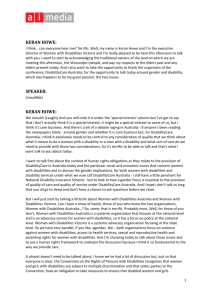
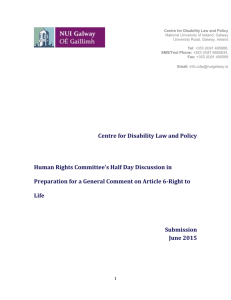
![an excerpt of the webinar [DOC]](http://s3.studylib.net/store/data/007134267_1-af918ba91d8f5adb16a99f3c2bf4f4df-300x300.png)
